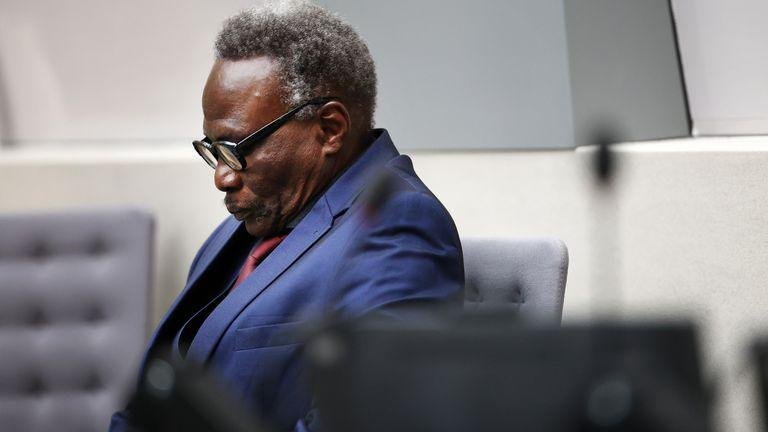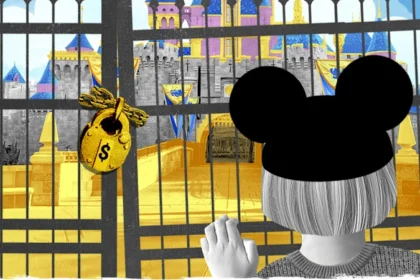Militia Leader Convicted for Atrocities in Darfur: A Landmark ICC Ruling
In a significant development for international justice, the International Criminal Court (ICC) has convicted Ali Muhammad Ali Abd-al-Rahman, widely known as Ali Kushayb, for his role in the horrific atrocities committed during the Darfur conflict. This ruling marks a pivotal moment in the ICC’s ongoing efforts to address war crimes and crimes against humanity in Sudan, particularly in a region that has suffered immensely since the early 2000s.
A Historic Conviction
On a recent date, the ICC found Abd-al-Rahman guilty on 27 counts, including war crimes and crimes against humanity, such as murder, rape, and persecution. This conviction is particularly notable as it is the first of its kind related to the Darfur conflict since the ICC began its investigations in 2005. Presiding Judge Joanna Korner emphasized that Abd-al-Rahman played a crucial role in orchestrating the violence perpetrated by the Janjaweed militia, stating that he “encouraged and gave instructions that resulted in the killings, the rapes, and destruction committed by the Janjaweed.”
The Darfur Conflict: A Brief Overview
The Darfur conflict erupted in 2003 when ethnic groups from central and sub-Saharan Africa launched an insurgency against the Sudanese government, led at the time by President Omar al-Bashir. In response, the government initiated a brutal campaign involving aerial bombings and ground assaults carried out by the military and the Janjaweed militia. This militia, notorious for its violent tactics, often attacked villages at dawn, leading to mass killings, rapes, and widespread displacement.
The United Nations estimates that between 2003 and 2020, approximately 300,000 people lost their lives due to the conflict, while around 2.7 million were forcibly displaced from their homes. The scale of the violence and the suffering endured by the civilian population has drawn international condemnation and calls for accountability.
Abd-al-Rahman’s Role in the Atrocities
As a senior commander in the Janjaweed, Abd-al-Rahman was instrumental in executing the government’s strategy to suppress the rebellion. Testimonies from 56 witnesses during the trial revealed the extent of the violence, including the use of sexual violence as a weapon of war. One witness recounted a chilling directive from Abd-al-Rahman during a massacre, urging his fighters to “repeat, repeat for these people. Maybe there are some that you have missed.”
Despite his conviction, Abd-al-Rahman had previously pleaded not guilty to 31 charges, claiming he was not the individual known as Ali Kushayb. However, the ICC judges dismissed this defense, underscoring the overwhelming evidence against him.
Ongoing Implications of the Conflict
The ICC’s ruling comes at a time when the situation in Sudan remains dire. The civil war that erupted in 2023 between the Sudanese army and the Rapid Support Forces (RSF), which evolved from the Janjaweed, has exacerbated the humanitarian crisis. The World Health Organization reports that at least 40,000 people have died in the ongoing conflict, with around 12 million displaced. Furthermore, over 24 million people are facing acute food insecurity, highlighting the urgent need for international intervention.
The RSF has been accused of committing genocide in Darfur, alongside other heinous acts such as mass looting and sexual violence. Videos circulating online have depicted RSF fighters engaging in brutal acts, including lynching women and attacking emergency responders.
A Call for Justice
Liz Evenson, the international justice director at Human Rights Watch, remarked on the significance of Abd-al-Rahman’s conviction, stating it offers a measure of justice for the victims and communities terrorized by the Janjaweed. She emphasized that the ongoing conflict in Sudan continues to produce new victims, compounding the suffering of those affected in the past. Evenson urged governments worldwide to take action to advance justice for all victims of the conflict.
The Future of Justice in Sudan
While Abd-al-Rahman’s conviction is a step forward, it raises questions about the broader accountability for the atrocities committed during the Darfur conflict. Former President Omar al-Bashir, who has been charged with genocide and war crimes, remains in military custody in Sudan and has yet to be handed over to the ICC. The lack of accountability for high-ranking officials complicates the path toward justice and reconciliation in a region still grappling with the scars of war.
Conclusion
The conviction of Ali Muhammad Ali Abd-al-Rahman serves as a landmark moment in the pursuit of justice for the victims of the Darfur conflict. It underscores the ICC’s commitment to holding individuals accountable for their actions, even in the face of significant challenges. As the situation in Sudan continues to evolve, the international community must remain vigilant and proactive in addressing the ongoing humanitarian crisis and ensuring that justice prevails for all those affected by the violence.










